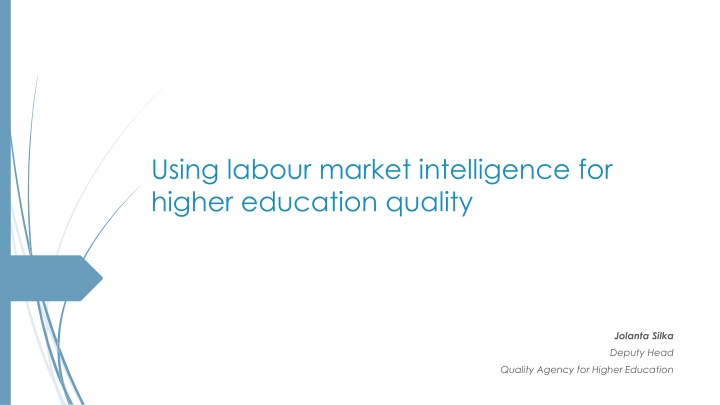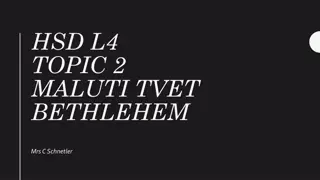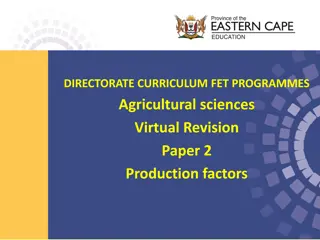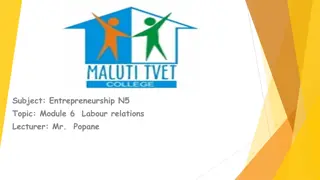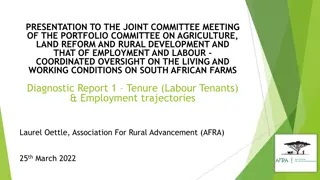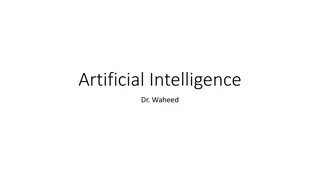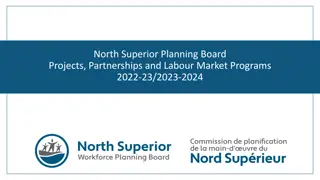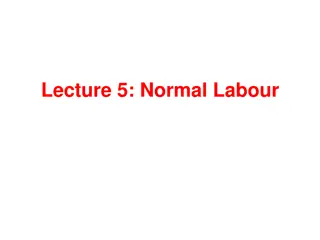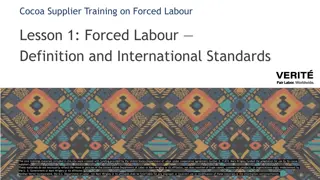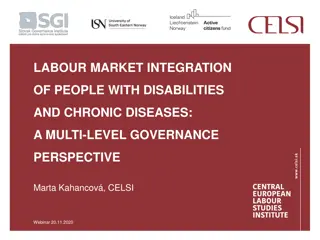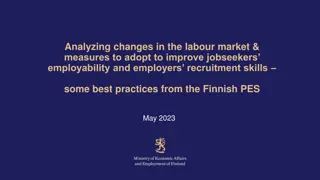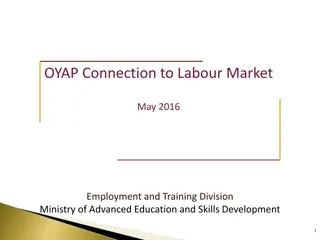Enhancing Higher Education Quality Through Labour Market Intelligence
Explore how labour market intelligence is used to improve the quality of higher education programs. The process involves developing new study programs based on state and professional standards, aligning learning outcomes with industry needs, and obtaining input from employers and labour market representatives. Accreditation, licensing, and ongoing improvements ensure that the programs meet current and future labour market demands.
Download Presentation

Please find below an Image/Link to download the presentation.
The content on the website is provided AS IS for your information and personal use only. It may not be sold, licensed, or shared on other websites without obtaining consent from the author.If you encounter any issues during the download, it is possible that the publisher has removed the file from their server.
You are allowed to download the files provided on this website for personal or commercial use, subject to the condition that they are used lawfully. All files are the property of their respective owners.
The content on the website is provided AS IS for your information and personal use only. It may not be sold, licensed, or shared on other websites without obtaining consent from the author.
E N D
Presentation Transcript
Using labour market intelligence for higher education quality Jolanta Silka Deputy Head Quality Agency for Higher Education
Development of new study programme The autonomy of the higher education institutions Based on: State educational standards Professional (occupational) standards (if applicable) General learning outcomes of the European/National Qualifications Framework Level Specific learning outcomes (defined by the higher education institution itself) in cooperation with employers Independent review of a labour market representative
Study programme cycle Latvian Confederation of Employers Sectoral Councils of Experts Professional organisations/associations provides expertise and opinion Ministry of Economics Report on medium and long-term forecasts on labour market needs Current situation at the labour market Medium and long term forecasts based on economy development and demography scenarios Improvements Accreditation Implementation/ reviewing Licensing initial assessment Approval and submission for license New study programme development
State Educational Standards approved by Cabinet of Ministers Strategic objective State standard on academic education Bachelor and master reference to the EQF level main (compulsory) parts of programmes State standard on 1stlevel professional HE short cycle programmes scope of programmes and their parts (duration and credits) State standard on 2ndlevel professional HE professional bachelor and master assessment principles further education rights
Example - Compliance with State Educational Standard 4 years studies, 160 CP 240 ECTS, Professional bachelor degree in pedagogy and Teacher`s qualification
Compliance with labour market needs Classification of occupations (professions) Occupational standard or description of qualification knowledge, skills and competences to be acquired
Teacher new occupational standard Teacher NQF/EQF 6 level Professional requirements Vocational education teacher, general secondary teacher, general primary education teacher, special education teacher, pre-school education teacher Tasks and responsibilities of professional activity Professional knowledge, skills and competences Working group Ministry Of Education and Science, Latvian Trade Union of Education and Science Employees, Latvian association of educational heads, several universities, organisation responsible for teachers further training and professional development, principles of schools etc.
Regular revision of study programmes Committee/ Council (internal) including external stakeholders Regular feedback from students/ graduates/ employers VS-1-I Measurement of student general satisfaction Every study year at the beginning of the second semester Student general satisfaction survey is carried out. Survey covers all students of LiepU. Survey results are available at LiepU QMS, results are prepared in both the faculty perspective and for each study programme separately; Faculty Deans include them in Faculty Self-evaluation reports and study division self-evaluation reports. Overall student opinion and comments are available at LiepU QMS. VS-1-II Measurement of employer satisfaction Employer satisfaction at LiepU is analysed by means of enquiring Commission Chairs of final / state examinations as well as including questions in the practice evaluation form on theoretic knowledge of students, their practical skills and suggestions for further studies and work. VS-1-III Measurement of graduates satisfaction Every year there is an electronic graduate survey based on the collected graduate contacts. Survey results are available at LiepU QMS, results are prepared in both the faculty perspective and for each study programme separately and Faculty Deans include them in Faculty Self-development reports and study programme directors include them in study programme / study division self-evaluation reports. Example
Thank you jolanta.silka@aic.lv
